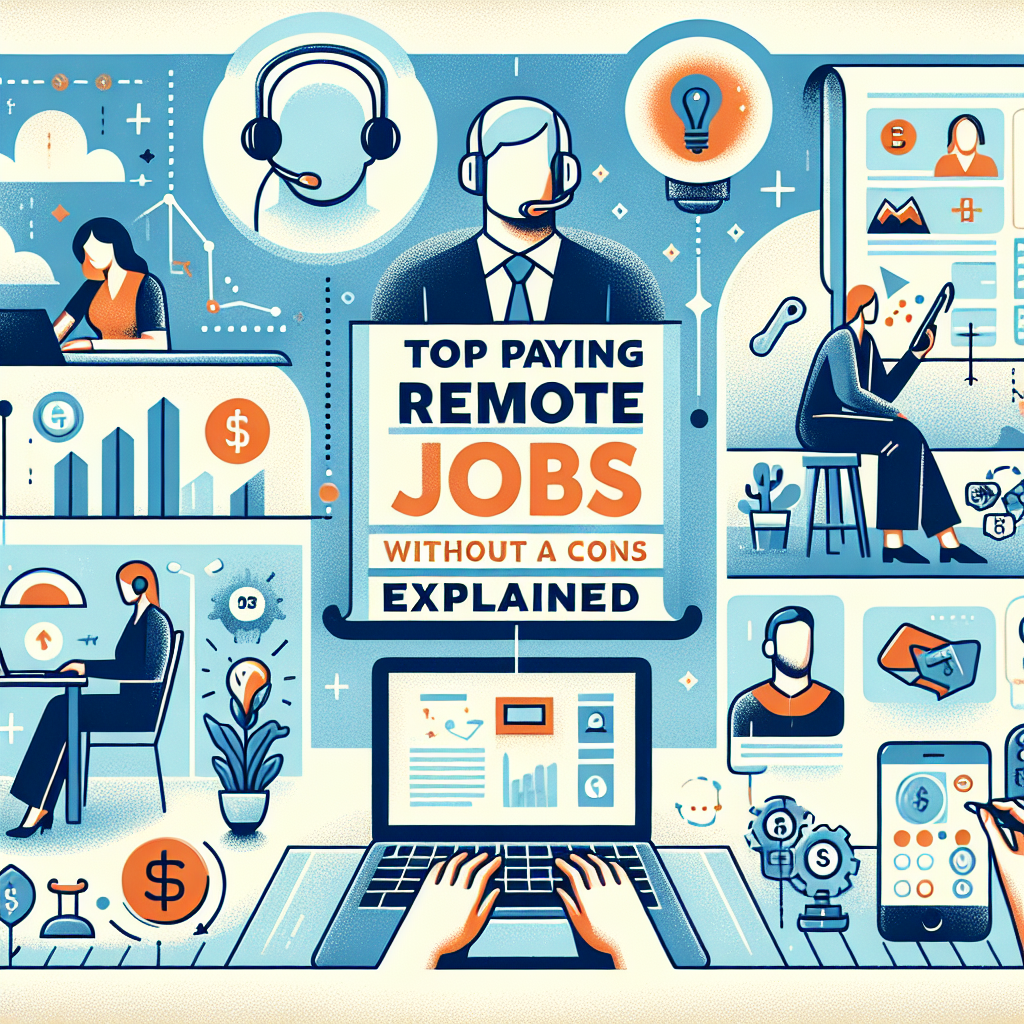Breaking into remote work without a college diploma is increasingly realistic. Top Paying Remote Jobs Without A Degree: Pros and Cons Explained is a useful starting point for anyone wondering which careers offer high pay, flexibility, and a path that doesn’t require a four-year degree. Below I outline common high-paying remote roles, what they demand, and the trade-offs you should weigh before switching tracks.
High-paying remote roles you can reach without a degree
Many well-paid remote positions value skills, experience, and certifications more than formal education. Here are roles that frequently pay above-average wages and often allow entry through self-study, bootcamps, or on-the-job experience:
- Web developer / Front-end developer — build websites and web apps using HTML, CSS, JavaScript, and frameworks.
- UX/UI designer — design interfaces and user experiences; portfolios often matter more than diplomas.
- Digital marketer / SEO specialist — run paid ads, optimize sites for search engines, and analyze campaigns.
- Technical support or IT specialist — remote helpdesk roles for SaaS and tech companies.
- Sales development representative (SDR) / Account executive — commission-driven roles with high upside for top performers.
- Freelance writer or content strategist — specialty niches (tech, finance, healthcare) pay well for expertise.
- Customer success manager — retain and grow revenue for SaaS clients, often remote and lucrative with bonuses.
- Data analyst / Business analyst — entry via online courses and portfolio projects; some roles accept certifications instead of degrees.
Pros and cons: what to expect
Choosing a non-degree path into a remote, well-paying job has clear advantages and real drawbacks. Evaluate both to decide whether the tradeoffs align with your goals.
Pros
- Lower cost and faster entry — online courses, bootcamps, and self-directed learning let you start earning sooner.
- Flexibility — many remote roles allow location independence and adaptable schedules.
- Skill-focused hiring — employers increasingly value demonstrable skills, portfolios, and outcomes over credentials.
- High earning potential — sales, development, and specialized freelance work can scale quickly with experience.
Cons
- More competition — lack of degree means you must show strong portfolios, certifications, or measurable results.
- Potential barriers for senior roles — some companies still prefer degrees for leadership or certain corporate roles.
- Benefits and stability — freelance or contract work may lack consistent benefits like health insurance or retirement plans.
- Learning curve and self-discipline — remote learning and self-employment require motivation and time management skills.
How to break in and accelerate your salary growth
Successful entry strategies focus on building a portfolio, networking, and demonstrating value quickly.
- Create a portfolio of real projects — even volunteer or small freelance gigs count. Show before/after results and metrics.
- Get certifications where they matter — e.g., Google Ads, AWS, or coding bootcamp certificates can validate skills.
- Use niche marketplaces and job boards — start with platforms that cater to remote and freelance roles to build experience.
- Prioritize measurable outcomes — emphasize revenue growth, conversion improvements, or time saved for past clients.
For students or early-career job hunters, it helps to know where to look for roles tailored to limited-experience candidates; resources curated specifically for college students and entry-level job boards can be good starting points. See this detailed guide to job boards for college students to find both free and paid posting options and curated opportunities: the ultimate guide to job boards for college students in the USA — free and paid options.
Which industries tend to pay most?
Tech-related fields (software, cloud services, data), specialized marketing (performance marketing, SEO for e-commerce), sales for B2B SaaS, and niche freelance consulting typically offer the best pay without requiring a degree. For labor market data and occupation profiles that help you estimate pay ranges and job outlooks for tech and related roles, see this U.S. Bureau of Labor Statistics overview of web developers and other IT occupations: BLS web developers page.
Quick checklist before you commit
- Do you have a demonstrable portfolio or project list?
- Can you invest time in short, focused training or certification?
- Are you comfortable with potential income variability early on?
- Have you mapped a 6–12 month plan for growth and networking?
FAQ
Q: Can I really earn as much without a degree?
A: Yes, many remote roles reward skills and results. Salaries vary by role, experience, and industry; top performers in sales, development, and specialized consulting can out-earn degree-holders.
Q: What’s the fastest route to a high-paying remote job?
A: Focus on roles with clear skills-to-income paths (web dev, paid marketing, sales), build a portfolio, and pursue targeted certifications or bootcamps to shorten the learning curve.
Q: Are there stable careers long-term without a degree?
A: Many. With continuous upskilling and a focus on transferable skills (communication, problem-solving, technical competency), you can build a stable career and move into leadership even without formal higher education.



